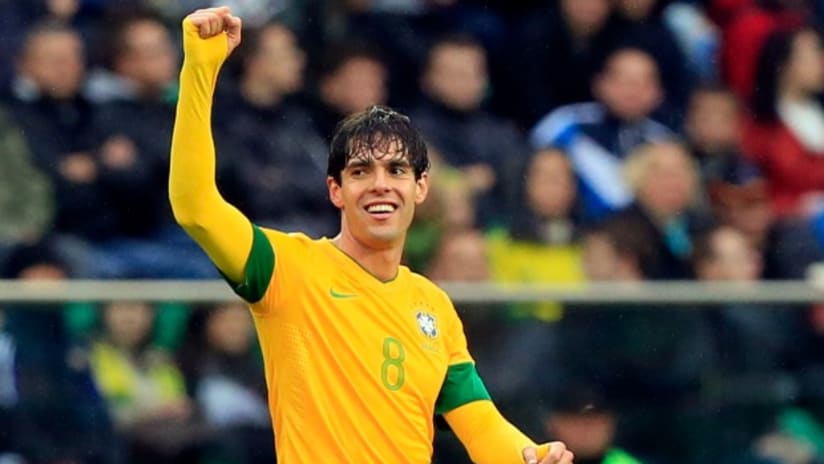MANHATTAN BEACH, Calif. – Watch out, Brazil. Here comes MLS.
While most Brazilian clubs have a head start of several decades of history and experience over their MLS counterparts, Brazilian superstar Kaká says the upstart North Americans may just be the wave of the future. The Orlando City Designated Player, speaking to reporters on Tuesday as part of MLS media day, explained the shortcomings present in the Brazilian game, as well as the room for growth in Major League Soccer.
Though Brazilian players may be highly esteemed around the world, the country’s soccer infrastructure has been under the microscope recently after the national team lost 7-1 against eventual champions Germany in the World Cup semifinals last year on Brazilian soil.
Kaká, on loan at Brazilian club Saõ Paulo following the World Cup, was able to see many of the problems in the domestic league up close.
“In Brazil, we have a lot of players [for whom] in the contract they have so much money, but in the end, the club doesn’t pay,” he explained. “So it’s better to have a small salary and receive it, than you have a big salary and don’t get it.”
Beyond unpaid salaries, problems such as the club calendar, which stretches virtually year-round between state and national competitions, and general mismanagement indicate a problem for Brazilian soccer – not to mention opportunities for MLS – in the World Cup winner’s eyes.
“Unfortunately, in Brazil, we have a big problem with the calendar, with the clubs about salaries. Here [in MLS], we are more organized in this moment, [with] a big possibility to grow faster than Brazil," Kaká said. "Brazil, in this moment we have to change a lot of things, and that’s not easy, because it’s so many times doing the wrong things, and now I think it’s the moment a lot of people that love football in Brazil need to think [about how] to change the soccer there.”
The former World Player of the Year pointed to the MLS club salary budgets as one of the concrete examples of a strong league infrastructure.
“I think it’s important, the salary cap [in MLS], because the clubs will be organized,” Kaká explained. “They will grow organized. … This cap will be increased when the television pays more for the league [rights], when the league grows. So it’s one step, step-by-step. Maybe it takes a little more time, but it’s important to grow, and franchises, the teams, will be healthy.”
The new OCSC star was emphatic in his belief that the game in Brazil needs to change. If it doesn’t? Then he expects the long tradition of Brazilians playing in MLS to continue.
“A lot of Brazilians already play here. Every Brazilian I’ve been speaking [to], they say very good things about the league; they loved [it],” Kaká noted. “So I think it will be better for the [coming] years if we have the opportunity to get more Brazilian players. For sure, if Brazil keeps going in this direction, for sure a lot of players want to go outside, and [MLS] will be a nice market for them to [go].”













